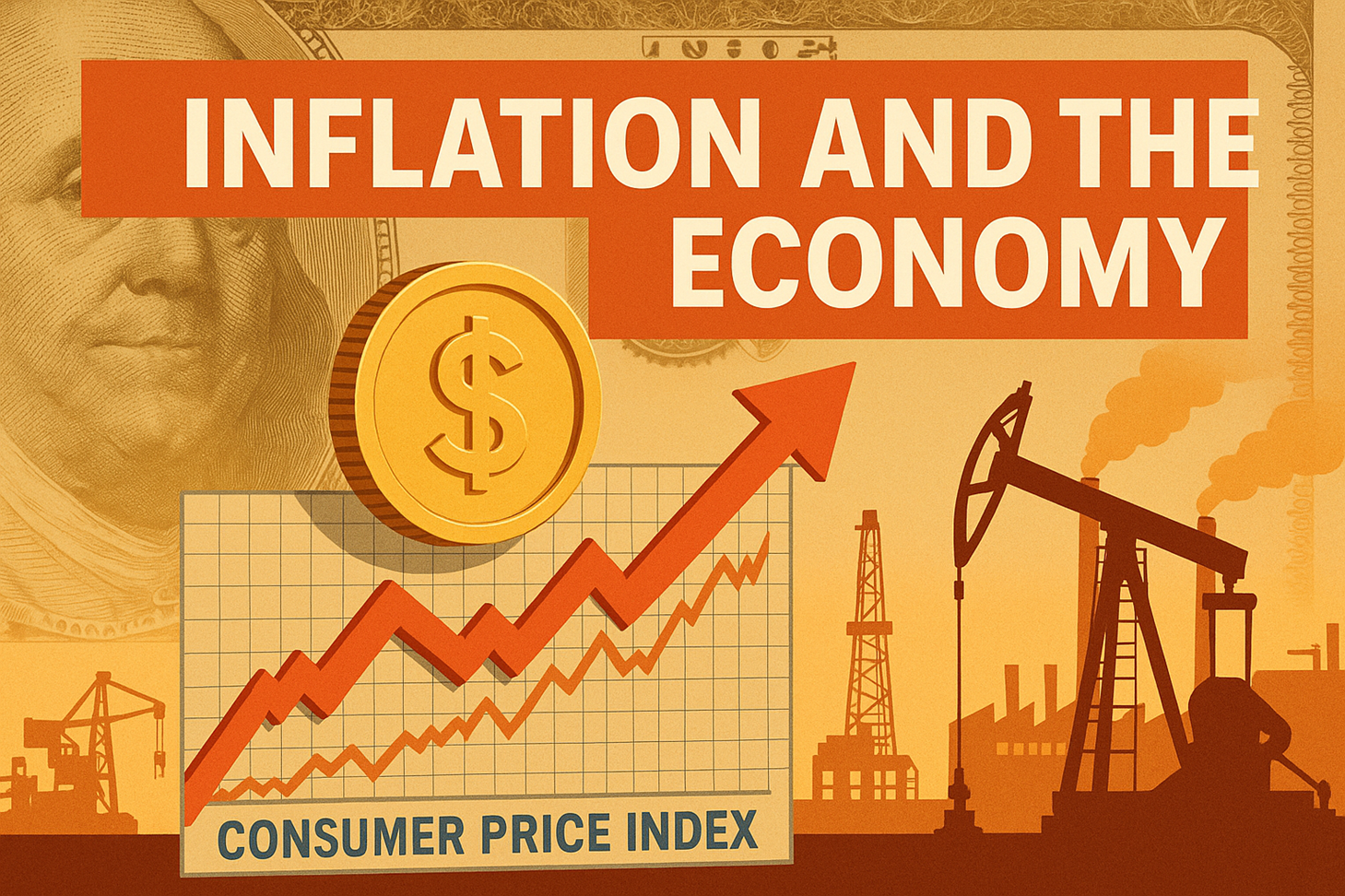Inflation is one of the most talked-about economic forces — and for good reason. It impacts everything from the cost of your morning coffee to the stability of entire industries. Understanding what inflation is, how it works, and its effects on employment is essential for both individuals and businesses, especially in industries like engineering, construction, architecture, and manufacturing.
Understanding Inflation
Inflation refers to the rate at which the general level of prices for goods and services rises, eroding purchasing power over time. This is usually measured by the Consumer Price Index (CPI) or the Producer Price Index (PPI). When inflation occurs, each unit of currency buys fewer goods and services.
Inflation can be caused by several factors, including:
- Demand-pull inflation – when demand for goods and services outpaces supply.
- Cost-push inflation – when the cost of production rises, causing businesses to raise prices.
- Built-in inflation – when workers demand higher wages, leading to increased production costs and further price hikes.
A moderate level of inflation is normal — and even healthy — for a growing economy. However, excessive inflation (or hyperinflation) can be destabilizing.
What Inflation Impacts
Inflation touches nearly every part of the economy, but its effects can vary widely:
- Consumer Spending – Higher prices can lead to reduced discretionary spending, particularly on non-essential goods.
- Interest Rates – Central banks often raise interest rates to slow inflation, increasing borrowing costs.
- Business Investment – Higher costs and uncertainty can make companies delay or scale back projects.
- Savings and Investments – Inflation erodes the value of cash savings but can increase returns on certain investments like commodities or real estate.
Industries and Groups That Benefit from Inflation
Not all sectors suffer during inflationary periods. Some can thrive:
- Commodity Producers – Companies dealing in oil, gas, metals, and agricultural products often benefit because the prices of their goods rise faster than their costs.
- Real Estate – Property values and rents tend to rise during inflation, protecting owners from eroded purchasing power.
- Energy – Higher fuel and electricity prices can boost revenue for energy producers.
- Government Contractors with Inflation-Indexed Contracts – Payments that adjust with inflation protect profit margins.
Industries and Groups That Struggle During Inflation
Inflation can be particularly challenging for:
- Fixed-Income Households – People living on pensions or fixed salaries see their purchasing power diminish.
- Retail – Higher prices can deter shoppers, reducing sales volumes.
- Manufacturing Dependent on Imported Materials – Rising costs for raw materials can squeeze margins.
- Travel and Leisure – Discretionary spending cuts can hit these industries hard.
How to Battle Inflation
Governments, central banks, and businesses use several tools to manage inflation:
- Monetary Policy Adjustments – Raising interest rates to reduce borrowing and spending.
- Fiscal Policies – Cutting government spending or increasing taxes to reduce demand.
- Productivity Improvements – Investing in technology and efficiency to offset rising costs.
- Strategic Purchasing and Hedging – Locking in prices for materials to avoid future cost spikes.
On an individual level, people can combat inflation by diversifying investments, reducing debt, and focusing on income-generating assets.
The Effect of Inflation on the Employment Market
Inflation influences hiring, wages, and job availability in complex ways:
- Wage Pressures – Employees often push for higher salaries to keep up with living costs.
- Hiring Slowdowns – If businesses face higher expenses, they may freeze hiring or reduce staff.
- Shifts in Industry Demand – Some sectors (e.g., energy, commodities) may see a hiring boom, while others (e.g., retail, hospitality) slow down.
- Geographic Impact – Regions with heavy manufacturing or resource extraction may benefit, while service-heavy regions could see job cuts.
Industry-Specific Impact for DAVRON’s Sectors
Since DAVRON specializes in engineering, construction, architecture, and manufacturing staffing, the effects of inflation on these sectors are particularly relevant.
Industries That May Benefit
- Engineering – Infrastructure spending often increases during inflationary times, especially if governments invest in projects to stimulate the economy.
- Manufacturing (Certain Segments) – Companies producing high-demand goods (energy equipment, defense, or essential industrial products) may see sustained demand.
- Construction in Energy/Utilities – Projects tied to energy production, mining, and utilities may grow as commodity prices rise.
Industries That May Struggle
- Architecture – Private-sector building projects, especially in commercial real estate, may slow as financing costs rise.
- Manufacturing Dependent on Imports – Sectors reliant on foreign raw materials face higher input costs, squeezing profitability.
- Construction in Residential/Commercial Markets – Higher interest rates can cool housing markets and commercial development, reducing demand for staffing.
Key Takeaways
Inflation is a powerful economic force that impacts the cost of living, business strategies, and job opportunities across the economy. While it creates challenges for many industries, it also opens opportunities for others — especially those positioned in commodities, infrastructure, and essential manufacturing.
For staffing firms like DAVRON, understanding these dynamics ensures we can align our recruitment strategies with the sectors most likely to thrive during inflationary periods, helping clients adapt and seize opportunities in a changing economy.

